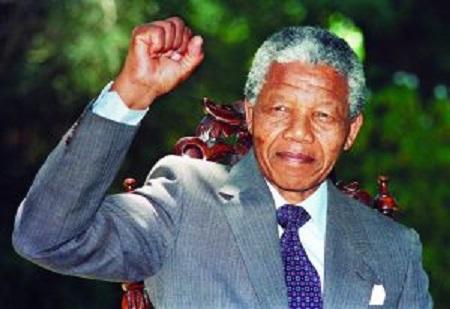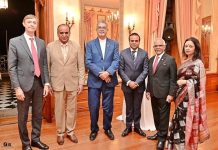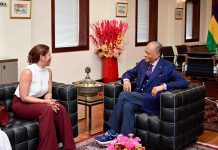Africa-Press – Mauritius. That a star is born is a miracle, it is even more miraculous when one considers the complex reactions between the neutrons and the protons and what their reactions lead to; the emission of light to the darkest parts of the universe, and the length of time it takes for one star to burn before it dims out to form other stars.
Achilles, the son of Peleus and the foremost figure in the siege of Troy in Homer’s The Odyssey, put forth the assertion that every individual should work towards guaranteeing that their name is remembered long after their bones have turned to dust.
Attend any funeral and you shall find that accolades are showered in loving memory of the late no matter their character, the accolades do count, but what counts more is how long the name of the dead shall be remembered.
This salient factor is dependent upon the deeds one performed, that is, what you do in this lifetime will determine how your name will be cherished and remembered: do good heroic or courageous deeds for the sake of other men and you shall be remembered as a totemic figure.
Some men’s deeds of selflessness in their lifetimes inspire philanthropy in the minds of those that come to revere them long after they are gone into the land of the dead and the gone.
In essence, what they do in their lifetime goes on to inspire following generations to do good for the harmony and the peace of the world long after they are laid to rest.
One would see this flow of events as reminiscent to the so-called ‘butterfly effect’; where the gentle flutter of a butterfly’s wings on some remote spot of the world can go on to create a typhoon on the other side of the world.
Some men’s acts and deeds, as those of Nelson Rolihlahla Mandela, have gone on to inspire the human race to be more peaceful, more humane in their deeds, to be selfless in the attainment of happiness, and to know that any human being’s inner circle of being is made up of the rest of the world, ignorant of colour, race, and creed.
And this has been confirmed by the various organisations that work in tandem to achieve the dreams he sought to reach in his lifetime, in brief, his body may be gone into the cryptic confines of some mausoleum erected in his name, but his spirit is still here, and his words are echoed through the lips of the many great living men that speak at the lectures held annually in his memory.
The Annual Nelson Mandela Day Lecture has seen speeches by such great political, business, and religious figures as Kofi Annan, Desmond Tutu, Bill Clinton, Thabo Mbeki, Wangari Maathai, and others, heard in lecture halls in front of global audiences to support the vision of global peace and harmony the late totemic figure, Nelson Mandela, had before his passing.
Mandela was a great man, a beautiful human soul whose deeds matched his words, whose spirit of righteousness could not be quelled by the confines of the prison cell in the long 27 years of incarceration he spent on the island of Robben, and he passed this spirit on to the rest of the world after his release from the long prison stay in then Apartheid South Africa.
His inner circle encompassed all members of the human race, and it seems that after all those years on isolated Robben Island, the world took his message of global peace and harmony to heart, and its words and tenets are now being spread on in a series of beautiful deeds of selflessness and philanthropy.
This circle of Mandela has seen such figures as Bill Gates, the man who became the youngest billionaire in the history of time, give away more than US$9 billion meant for the development of the children of Africa in the name of Nelson Mandela’s vision.
And his speech on the 17th of July at the Annual Nelson Mandela Day lecture goes to reveal that Madiba’s vision has indeed come to influence the world in a manner that will go a long way in influencing humanity to be more humane; that we should care more about each other and our dreams, that we should always work towards the attainment of our dreams and those of others, that the peace of the world is the most salient aspect of our existence.
And the speech by Gates confirms the reverend vision of Nelson Mandela. Nelson Mandela, based his entire life on the principle of dialogue; the art of listening and speaking to others: it is also the art of getting others to listen and speak to each other.
The Annual Lecture forms part of the annual celebrations of Mr Mandela’s birthday and creates an opportunity for leaders of international standing to present their views on critical issues impacting society at large.
This year’s lecture on the 17th of July (the eve of Mandela Day) under the theme “Living Together”, at the University of Pretoria, South Africa, echoed the lifelong struggle of Nelson Mandela to see the people of South Africa and the societies of the world living in a world without segregation; a world where every individual would be granted the same level of respect and equal opportunity to express themselves for the benefit of the progress of the world.
He begins the speech (drawn from a report by Reuters), by giving due respect to such prominent figures and dignitaries as Graça Machel, Professor Ndebele, Vice Chancellor De la Rey, members of the Mamelodi families and friends.
A fitting honour where it is due that marks Mr Gates as a great orator, but the opening lines of his speech hint the true cause of the address: The theme of this year’s Nelson Mandela Annual Lecture is “living together.
” This is fitting, because in many ways, “living together” was also the theme of Nelson Mandela’s life.
The system he fought against was based on the opposite idea; that people should be kept apart, that our superficial differences are more important than our common humanity.
Today, South Africans are still striving to “live together” in the fullest sense, but you are so much closer to that ideal because Nelson Mandela and so many others believed in the promise of one South Africa.
I was 9 years old when Nelson Mandela went to Robben Island. As a boy, I learned about him in school. I remember seeing reports about the anti-Apartheid movement on the evening news.
An echo to the words of the man whose totemic presence saw South Africa, Lesotho, the SADC region, Africa, and the rest of the world unite in a common voice to see to the eradication of Apartheid as a system of governance.
Apartheid saw to the inculcation of the view that separate development was the only way to progress; that the black and the white and the yellow and the blue could never unite in one voice or government, because one race group considered itself or was considered as the upper class and the other race groups the lower class: a view one finds rather hypocritical considering the fact that the lower classes served as the base in the economy.
Black members of the society were labourers in the mining industry, they were the domestic help in the homes of their oppressors, and they in short guaranteed the development of the state with their presence as an oppressed class.
The only time they could live together with the other races was with their backs bent in toil to see to the progress of the state, they could not live together with the ‘baas’, they were not afforded equal opportunity when it came to issues of employment and education.
Recessed to a corner of servitude, they had to struggle, and a hero like Nelson Mandela and his compadres came to change the old apartheid outlook. 1994 came and South Africa was declared free and the Rainbow Nation was created; but the demons of old still had to be exorcised out of the psyches of the people that had for long been oppressed, socialised and taught that they were different.
And heroes like Bill Gates come along to reinforce the sacred view that human sanctity should never be compromised: we are social beings that have the basic need to live together.
The man who innovated the personal computer software, and whose brand boasts the widest usage in the computer industry, actually is an individual who understands the world better than many of us do.
His high standing has not blinded him to the simple fact that the world is a village, that the neighbour is kin and therefore worthy of the concern of the other village members.
One should be aware of the simple fact that such concepts as “Global Village” have found the perfect vehicle in innovations like the internet, which was largely made possible by such figures as William Henry “Bill” Gates III (born on October the 28th, 1955).
He is on an ordinary day an American business magnate, entrepreneur, philanthropist, investor, and programmer. In 1975, Gates and Paul Allen co-founded Microsoft, which became the world’s largest Personal Computer software company.
During his career at Microsoft, Gates held the positions of chairman, CEO and chief software architect. Gates has authored and co-authored several books, but one can guess that through philanthropy, he is penning a story that will be remembered for a long time to come.
Computers form the core of modern-day living, but it seems the owner of the largest computer software company in the world believes in humanity more; and through that act alone supports the vision of the man that went to prison for a long 27 years.
He is a Mandela man whose story is told in the speech: I had been to Africa for the first time just the year before – in 1993 – when Melinda and I travelled in East Africa on vacation.
The landscape was beautiful. The people were friendly. But the poverty, which we were seeing for the first time, disturbed us. It also energised us. Obviously, we knew parts of Africa were very poor, but being on the continent turned what had been an abstraction into an injustice we could not ignore.
Melinda and I had always known we’d give our wealth to philanthropy—eventually. But when we were confronted with such glaring inequity, we started thinking about how to take action sooner.
Said in the speech further on Bill Gates realised after experiencing Africa that there were gaps in technology, that there was rampant poverty that had to be addressed.
This realisation must have led to his establishment of a foundation with his wife (Bill & Melinda Gates Foundation) because, he says in his own words:
…the costs of waiting had become clear. Our work is based on the belief that every person – no matter where they live – should have the opportunity to lead a healthy and productive life.
We have spent the past 15 years learning about the issues and looking for the leverage points where we can do the most to help people seize that opportunity.
He addresses issues such as progress and its challenges, youth development, education, health and nutrition, governance, but he perorates the speech by confirming that there is one thing he is sure of, and it is this: Africa can achieve the future it aspires to.
He goes on to conclude that such a future depends on the people of Africa working together, across economic and social strata and across national borders, to lay a foundation so that Africa’s young people have the opportunities they deserve.
These words are the same that Nelson Mandela believed in, that the youth of a land were in every essence its future, thus the stress on their being educated adequately.
Bill gates echoes Nelson Mandela and quotes that he said: Young people are capable, when aroused, of bringing down the towers of oppression and raising the banners of freedom.
Well said Bill, and we shall as you say, do everything within our power right now to help the youth to build the future that Nelson Mandela dreamed of. And in your own words, we will achieve that future together.
For More News And Analysis About Mauritius Follow Africa-Press







